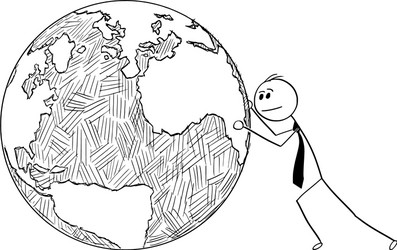Catastrophes, war outbreaks, politics, religion, mental health—all are topics we often avoid in everyday conversations. How many times have you come upon a subject in which you have no knowledge of? How about something quite serious that is occurring elsewhere in the world?
Well, we can use the internet to find out about them…
Indeed, the internet is a vast sea of the known and the unknown where you can find nearly—if not everything you’re looking for. I remember watching cliché videos of Gen Z people not knowing ‘basic’ or ‘common’ knowledge. At first I was quite surprised, but then I learned that perhaps this ‘lack of knowledge’ may simply come from people’s reluctance in learning about things that they don’t think would affect their lives directly.
We still have a lot of fossil fuel for our lives; of course we’re not worried.
For instance—global warming. Yes, it might seem repetitive whenever we talk about it between friends because in the end the conversation would spiral down to the causes of global warming and not so much about what we can do to help solve the problem within our community.
Why should we care about wars and political tensions far from our homes?
Another example that I would like to mention is the different war outbreaks going on around the world. We often see these conflicts discussed on social media platforms with people pressuring celebrities in choosing a side for a certain conflict. When I see fellow comrades—not the military term—posting about why you should support a certain side, I somewhat feel outraged because these very people wouldn’t have the courage to talk about it in person. And even if they did, they would often only seek provocation and disregard the other person’s opinion.
I feel like there’s no safe way of discussing these world events anymore.
Whether it’s rooted deep in American culture or students ‘don’t have the time,’ I believe it’s a shame that these topics aren’t more discussed in everyday conversations. I personally would like to talk to my friends about how dreadful the Ukraine war is; how wars have a common cause and effect relationship; how politicians and citizens deal with such conflicts; how the world changes its gears because of these conflicts; and so much more. Sadly I can’t because to many people, these topics are too serious to talk about in a daily conversation.
But maybe I’m just obsessed with wars and life-changing events.
What I noticed with the people I meet at school here in the U.S. is that chiefly those who have lived outside of the country OR have non-American parents tend to be more receptive to different cultures, and hence more open-minded about worldwide issues. If you don’t experience these different cultures then you can’t really know for sure what it’s like.
Maybe it really just depends on where you live or where you have lived your whole life.
To me, being aware of world events is being aware of our own lives. If we keep avoiding these topics, we would miss out on certain lessons—lessons about the flaws and beauties of society itself. If we keep avoiding these topics, we would miss out on our present—a present that will become history in the future.
Sometimes I really just want to shake people’s shoulders until they understand the importance and gravity of certain world events.
Any small thing you do now will be a part of history. Anything happening in the world now will be a part of history. You might not realise it as you’re reading this article, but all the bits and pieces of the present that you collect through time will become more and more scarce—more and more valuable in the eyes of future generations.
Like, ‘Come on! Let’s be a part of history!’
It isn’t a question of being smart or not; rather, I strongly believe it’s a question of whether students are willing to, metaphorically speaking, step out of their bedrooms—their beloved comfort zone—out of their house, out of the city, out of the country, out of the continent, and marvel at the world’s complex and intertwined functionalities.
No—really. You should try it some time.



